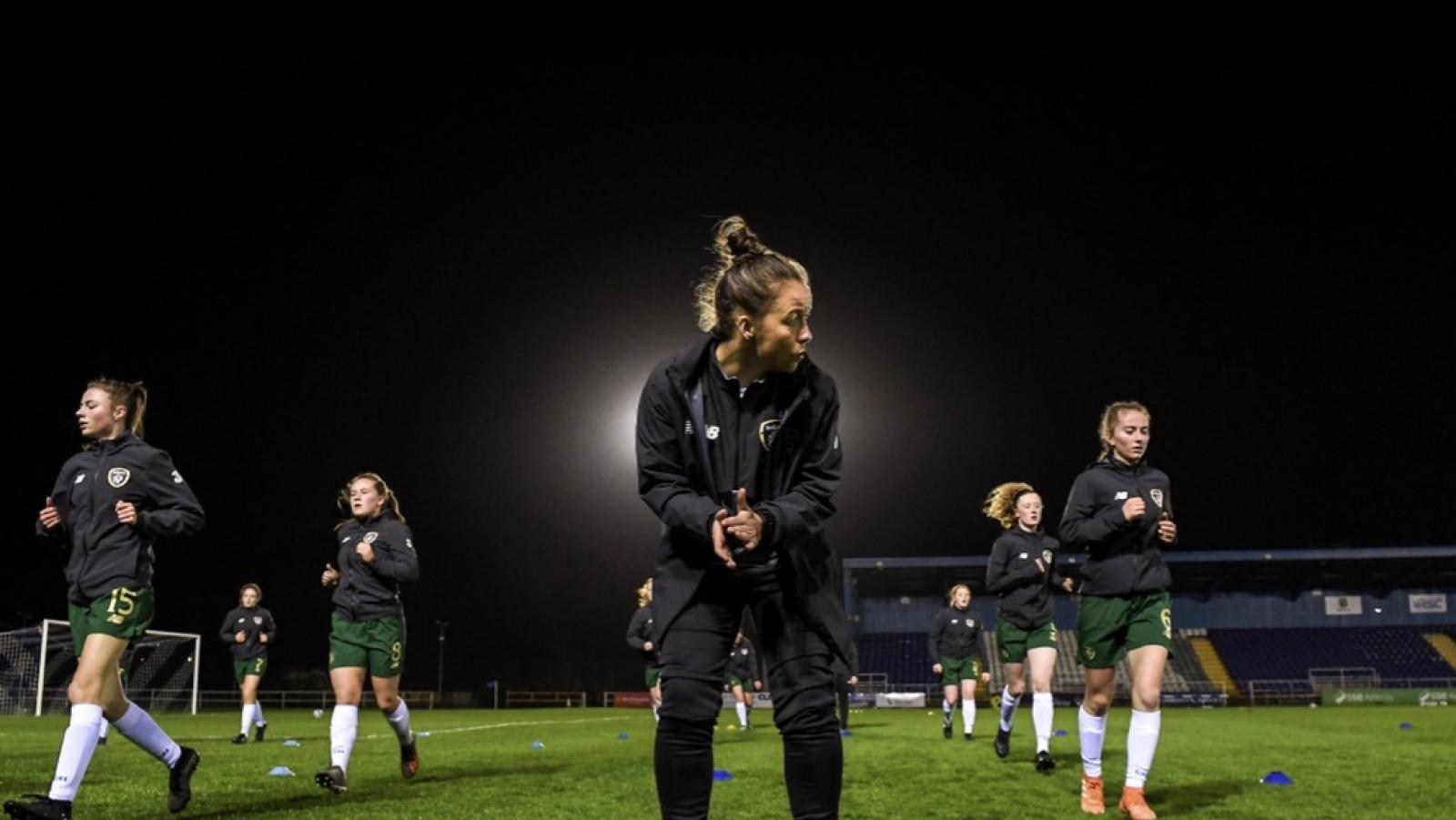
Sport Ireland Coaching Releases Women in Coaching Research Results
Sport Ireland has released the findings of the online coaching survey which exclusively targeted active and inactive female coaches across all sports on the island of Ireland.
The survey, and subsequent focus group conversations, were undertaken to address the information gap that exists on the coaching experience of females in Ireland and the impact this has on their involvement in coaching.
Led by Sport Ireland’s Research Unit, the online survey was launched in June 2020 and focused on active female coaches and inactive female coaches (defined as not coaching in the previous six months). Six follow-on focus groups were held in November 2020 to explore in more detail the issues pertinent to active and inactive female coaches.
2,374 coaches responded to the survey with a breakdown of 1,825 active and 549 inactive female coaches.
An overriding finding from the study was the need to better develop coaching networks. 58% of active female coaches indicated that they would like to observe other coaches in their sport and felt that not being part of a coaching network hampered their advancement opportunities. 86% of female coaches who did not have an effective coaching network indicated they would like one.
The survey also identified barriers to progression which can be grouped in to five areas; time constraints; sexism and gender related issues; lack of confidence; lack of NGB and Club support and parental factors.
Chief Executive of Sport Ireland, John Treacy commented, “The National Sports Policy 2018-2027 highlights coaching as being central to player development and to sports performance at all levels of competition. We want to encourage greater diversity among coaches and to broaden the coaching base to include more women, from grassroots right up to elite. The findings of the survey will help inform our work in this area and increase the number of women coaching and officiating”.
Director of Sport Ireland Coaching, Michael McGeehin welcomes the research, “One of the areas investigated in this report centres on the challenges and opportunities to increase the numbers of female coaches across all sports and at all levels. The barriers to progression identified, while highlighting the practical, personal, social and cultural challenges that can impact female coaches, also signposts the way forward for all sports bodies to encourage, support and drive change”.
Research participants also noted the variation of having female role models and mentors available and visible. Most found value from having a mentor who was either male or female, but emphasis was placed on the particular benefits of having a female mentor within a sporting context. They noted the importance of female role models in encouraging and inspiring a pathway in coaching for other females.
A lack of NGB and Club support was a prominent challenge faced by female coaches. Challenges within the club, negative coaching environments, feeling undervalued and a lack of respect and support were all mentioned.
While a lot of the information discovered in the report may be applicable to male coaches also, the theme of Coaching Culture and citing sexism or gender related issues seems to be something only female coaches experience. Despite several female coaches noting that they received respect from male athletes in a coaching situation, many female coaches faced challenges and had more negative experiences because of their gender or age in other coaching related roles, particularly when dealing with male parents, male coaching colleagues and males in positions of management or administration. One elite level coach stating;
“I'm working solely with male athletes and I've never, maybe very rarely, had an issue with a male player in terms of being a female coach but it can more often comes from a male member of the management team or a male member of the executive committee or even just a supporter.”
- Survey respondent- Elite Coach.
Commenting on the report, Women in Sport Lead Nora Stapleton stated, “Prior to this report, we had some knowledge of the motivations for women to start coaching, the challenges they might experience, and what support they would like to see put in place to help their progression. However, this knowledge was based on reports from NGBs, personal experience and feedback we might receive. By completing this coaching research, we are now in a position to better understand female coaches and to really help make a difference through the support we offer and resources we might create”.
The full report is available below or on the Women in Coaching webpage